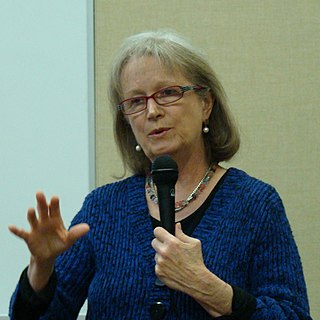A Quote by Norman Vincent Peale
Religious faith may very well be considered a science, for it responds invariably to certain formulae. Perform the technique of faith according to the laws which have been proved workable in human experience and you will always get a result of power.
Related Quotes
Faith is the "eternal elixir" which gives life, power and action to the impulse of thought! Faith is the starting point of all accumulation of riches! Faith is the basis of all "miracles" and all mysteries which cannot be analyzed by the rules of science! Faith is the only known antidote for failure!
Even the sober desire for progress is sustained by faith—faith in the intrinsic goodness of human nature and in the omnipotence of science. It is a defiant and blasphemous faith, not unlike that held by the men who set out to build a "city and a tower, whose top may reach unto heaven" and who believed that "nothing will be restrained from them, which they have imagined to do.
There is no such thing as a faithless person; we either have faith in the power of love, or faith in the power of fear. For faith is an aspect of consciousness. Have faith in love, and fear will lose its power over you. Have faith in forgiveness, and your self-hatred will fall away. Have faith in miracles, and they will come to you.
[I]t is truth alone-scientific, established, proved, and rational truth-which is capable of satisfying nowadays the awakened minds of all classes. We may still say perhaps, 'faith governs the world,'-but the faith of the present is no longer in revelation or in the priest-it is in reason and in science.
The idea, therefore, that religious faith is somehow a sacred human convention—distinguished, as it is, both by the extravagance of its claims and by the paucity of its evidence—is really too great a monstrosity to be appreciated in all its glory. Religious faith represents so uncompromising a misuse of the power of our minds that it forms a kind of perverse, cultural singularity—a vanishing point beyond which rational discourse proves impossible.
In all the wide gamut of human experience, nothing plays so important a part as faith.... Faith that is as broad as the heavens and as wide as the earth. Faith that comprehends in its vast sympathies everything human as well as divine, and carries one with the swift sure wings of the angels directly to his goal.
The great masses of people do not consist of philosophers; precisely for the masses, faith is often the sole foundation of a moral attitude. The various substitutes have not proved so successful from the standpoint of results that they could be regarded as a useful replacement for previous religious creeds. But if religious doctrine and faith are really to embrace the broad masses, the unconditional authority of the content of this faith is the foundation of all efficacy.
Religious faith in the case of the Hindus has never been allowed to run counter to scientific laws, moreover the former is never made a condition for the knowledge they teach, but there are always scrupulously careful to take into consideration the possibility that by reason both the agnostic and atheist may attain truth in their own way. Such tolerance may be surprising to religious believers in the West, but it is an integral part of Vedantic belief.



































